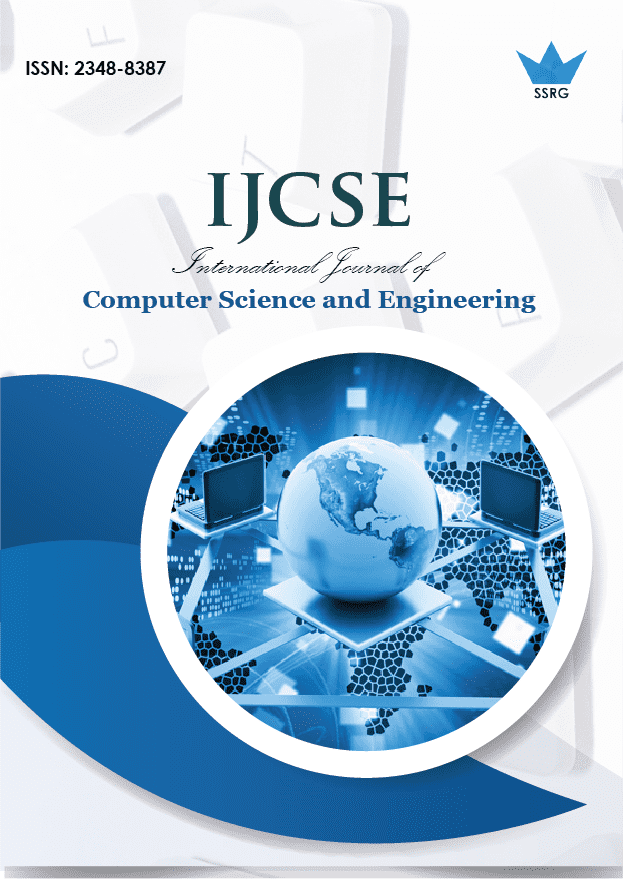Query Reformulation Using String Transformation

| International Journal of Computer Science and Engineering |
| © 2014 by SSRG - IJCSE Journal |
| Volume 1 Issue 9 |
| Year of Publication : 2014 |
| Authors : Sheetal More |
How to Cite?
Sheetal More, "Query Reformulation Using String Transformation," SSRG International Journal of Computer Science and Engineering , vol. 1, no. 9, pp. 1-5, 2014. Crossref, https://doi.org/10.14445/23488387/IJCSE-V1I9P107
Abstract:
Generally there is a need to change the input string in data mining, natural language processing, information retrieval and bioinformatics. Many times the user is not from the technical background so he may enter the incorrect input string. Depending on the input string the system will generate some topmost k output strings. Most of the time for better results of the search, there is need to transform the input string. Sometimes the user also enters the shortforms that is abbreviations for the search in that case there is need of transforming these abbreviations into their original forms or meanings. Many times while entering the input string user does the spelling mistakes depending upon the pronunciations. So in this case there is need to correct these spelling mistakes and then search for the results. Thus there is need of converting abbreviations into their original form, correction of spelling errors and also replacing the word with its synonym if needed for better search results. Thus these conversions of strings can be stated as string transformation. String transformation can be conducted in two different ways depending upon the use of dictionary that is whether the dictionary is used or not. In this paper log linear model is expressed in terms of an input and output strings. The paper shows an approach for string transformation which is both accurate and efficient. The proposed method is applicable for string transformation and reformation of query.
Keywords:
Log Linear Model, Spelling Error Correction, String Transformation, Query Reformulation.
References:
[1]. Ziqi Wang, Gu Xu, Hang Li, and Ming Zhang” A Probabilistic Approach to String Transformation” IEEE TRANSACTIONS ON KNOWLEDGE AND DATA ENGINEERING VOL:PP NO:99 YEAR 2013.
[2]. A.Arasu, S. Chaudhuri, and R. Kaushik, “Learning string transformations from examples,” Proc. VLDB Endow., vol. 2, pp. 514– 525, August 2009.
[3]. M. Dreyer, J. R. Smith, and J. Eisner, “Latent-variable modeling of string transductions with finite-state methods,” in Proceedings of the Conference on Empirical Methods in Natural Language Processing, ser. EMNLP ’08. Stroudsburg, PA, USA: Association for Computational Linguistics, 2008, pp. 1080– 1089.
[4]. S. Tejada, C. A. Knoblock, and S. Minton, “Learning domainindependent string transformation weights for high accuracy object identification,” in Proceedings of the eighth ACM SIGKDD international conference on Knowledge discovery and data mining, ser. KDD ’02. New York, NY, USA: ACM, 2002, pp. 350–359.
[5]. N. Okazaki, Y. Tsuruoka, S. Ananiadou, and J. Tsujii, “A discriminative candidate generator for string transformations,” in Proceedings of the Conference on Empirical Methods in Natural Language Processing, ser. EMNLP ’08. Morristown, NJ, USA: Association for Computational Linguistics, 2008, pp. 447–456.
[6]. M. Li, Y. Zhang, M. Zhu, and M. Zhou, “Exploring distributional similarity based models for query spelling correction,” in Proceedings of the 21st International Conference on Computational Linguistics and the 44th annual meeting of the Association for Computational Linguistics, ser. ACL ’06. Morristown, NJ, USA: Association for Computational Linguistics, 2006, pp. 1025–1032.
[7]. A.Behm, S. Ji, C. Li, and J. Lu, “Space-constrained grambased indexing for efficient approximate string search,” in Proceedings of the 2009 IEEE International Conference on Data Engineering, ser. ICDE ’09. Washington, DC, USA: IEEE Computer Society, 2009, pp. 604–615.

 10.14445/23488387/IJCSE-V1I9P107
10.14445/23488387/IJCSE-V1I9P107